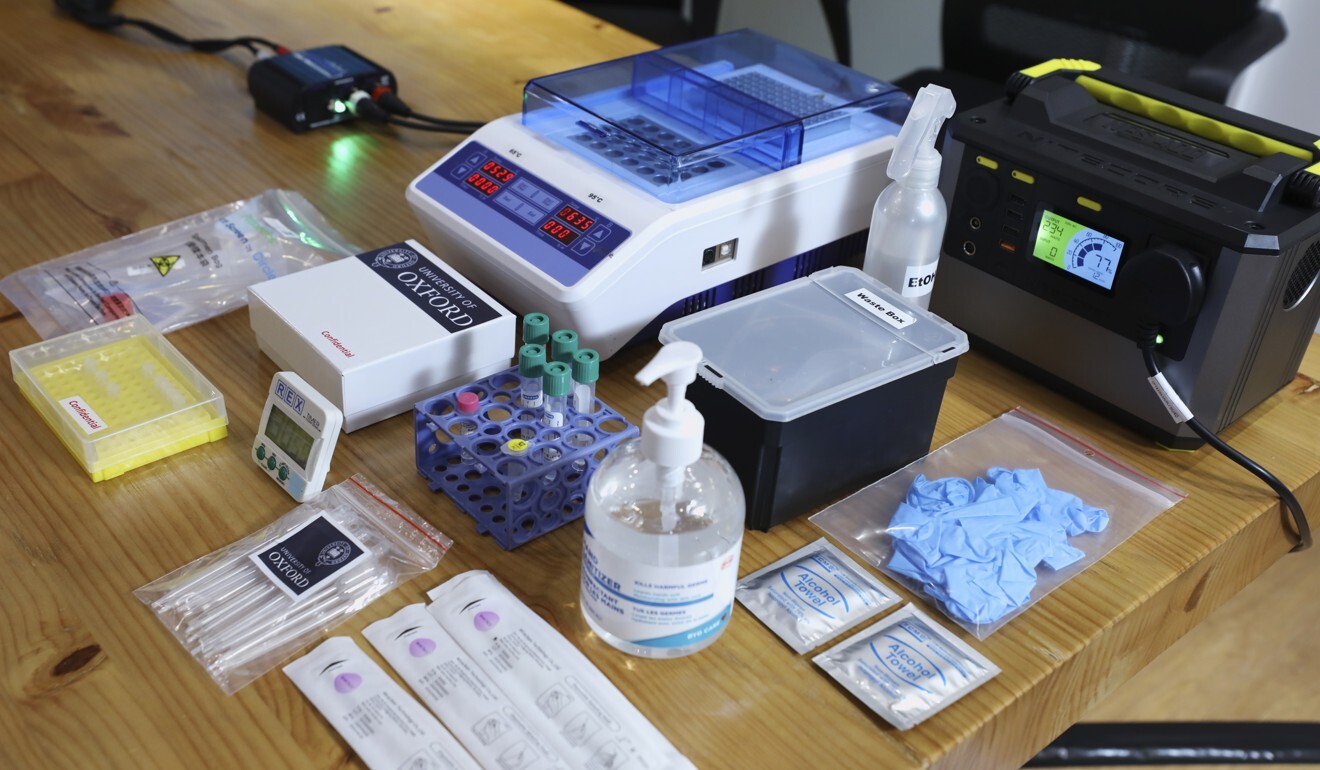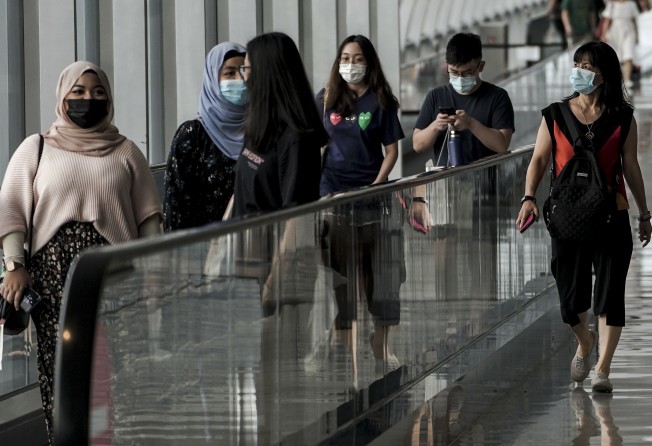
Hong Kong’s trial of rapid Covid-19 tests extended by a week as early results show detection levels underperforming
- The new tests, which return results in under an hour, are seen as a key to jump-starting international air travel
- But the screenings have a sensitivity rate below 90 per cent, demanding a number of adjustments, according to an infectious disease expert

A rapid Covid-19 test at the heart of Hong Kong’s plan to reopen international travel has yielded less accurate results than expected, prompting authorities to prolong the pilot trial for another week, the Post has learned.
It was not immediately clear if the findings would affect the roll-out of the much-anticipated travel bubble between the city and Singapore, after the leading Asian air hubs signed an in-principle agreement last month promising to establish the world’s first two-way, quarantine-free corridor “within weeks”.
The administration is expected to hold a wide-ranging press conference on Wednesday morning to reveal how the scheme is progressing, as well as plans for allowing Hong Kong residents to return from the mainland without quarantine.
The government launched a two-week trial on October 28 for the rapid coronavirus test developed by a University of Oxford research team and owned by Prenetics. The test collects respiratory samples submitted by inbound travellers at the airport, then compares the results with that of the RT-PCR nucleic acid test, the “reference standard” the city has used to screen for the virus since the beginning of the pandemic.
The government previously said the airport trial would shed some light on whether the new rapid test might shorten waiting times for international arrivals, helping the city more quickly reconnect with the rest of the world.
But such hopes remain uncertain, as Professor David Hui Shu-cheong, Chinese University’s infectious disease expert and a government adviser on the coronavirus, told the Post that the trial, scheduled to end on Tuesday, would be extended for another week.
Hui said the sensitivity rate of the rapid test was below 90 per cent in the initial stage of the trial, lower than the 92 to 100 per cent claimed by the test developers and Prenetics.

But the figure may still rise after some adjustments, Hui added, including enhancing the accuracy by conducting the test on the virus’ genetic material after it has been extracted from a specimen. They will also adjust to allow detection of cases at lower viral levels.
“The [sensitivity] rate should be better after making all these changes. But we would still need to wait for data from the entire three weeks,” Hui said.
Called the Oxsed RaVid Direct, the test draws on a technology called RT-LAMP and involves taking mouth rinse and gargle specimens rather than the more traditional deep throat saliva samples used in RT-PCR tests.
The RT-LAMP test can return results within 30 minutes and be conducted with a device at the airport, while the RT-PCR test takes six to eight hours and must be processed in a laboratory.
Prenetics earlier said its test had a sensitivity rate of between 92 to 100 per cent on average. But in a previous hospital trial involving 69 samples, the test was found to have missed some infections with a very low viral level. That compared with a sensitivity rate of more than 95 per cent from RT-PCR tests, according to some research.
The health expert also said the entire process – from collecting a sample to yielding a result in the trial – took about 52 minutes after including modifications introduced in the later stages of the trial.
Leung Chi-chiu, a respiratory specialist, said a 90 per cent success rate for a test was not ideal in a travel-bubble arrangement, as sampling issues could limit the sensitivity of detecting Covid-19 cases.
“If [we are] using new technology with much lower performance in the range of 90 per cent, that is not acceptable, especially in the travel-bubble arrangement, because the test is a critical step to minimise chances of importing cases into our community,” he said.
The Post has contacted the Food and Health Bureau and Prenetics for comment.
Additional reporting by Rachel Yeo